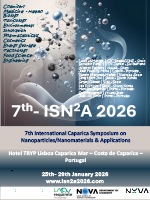ISBN
978-989-35197-4-5
 |
Carlos Lodeiro Y EspiñoFull Professor Head of the Nanosynthesis, Chemosensors and Spectroscopy Laboratory BIOSCOPE Research Group & (Bio)Chemistry and OMICS Group, LAQV-REQUIMTE, Department of Chemistry NOVA School of Science and Technology, NOVA University Lisbon (Caparica, Portugal) CEO of the PROTEOMASS Scientific Society cle@fct.unl.pt | clodeiro@bioscopegroup.org View Full BiographyProfessor C. Lodeiro graduated in Chemistry in 1995 and received his PhD in chemistry in 1999 by the University of Santiago de Compostela, Spain. In 1999 he moved to the NOVA University Lisbon (UNL), Portugal as a European Marie Curie postdoctoral researcher in a project concerning molecular devices and machines, and in 2004 he became a fellow researcher and invited assistant lecturer at the REQUIMTE-CQFB, Chemistry Department (UNL). In 2008 Dr. Lodeiro got the habilitation in Chemistry in Spain, and a year later in 2009 he moved to the University of Vigo, Faculty of Sciences of Ourense (FCOU), Spain as IPP (Isidro Parga Pondal) researcher-lecturer. In 2012 became Assistant Professor at the Chemistry Department UCIBIO-REQUIMTE Laboratory in the NOVA Science and Technology School, UNL. Dr. Lodeiro is Fellow of the Royal Society of Chemistry since 2014 and member of the Portuguese Chemistry Society since 2002 and the American Chemical Society since 2016. In 2017 got the habilitation in Inorganic Analytical Chemistry in Portugal at the FCT-UNL and became Associate Professor in the Chemistry Department FCT-UNL. In 2024 became Full Professor in Chemistry. Prof Lodeiro is author and coauthor of more than 325 papers and 550 conference communications. Presently, he co-leads the BIOSCOPE research group (www.bioscopegroup.org), he is CEO of the PROTEOMASS Scientific Society, and Founder coCEO of the Chemical start-up Nan@rts. His research interest comprises (i) physical-organic and physical-inorganic chemistry of dyes and chemosensors, (ii) synthesis of Functionalized Nanoparticles, Nanocomposites and Nanomaterials (iii) applications of nanomaterials in environmental research, (iv) application of nanomaterials in bio-medical research, (v) supramolecular analytical proteomics, and (vi) Onco and Nanoproteomics. C. Lodeiro has mentored 13 PhDs plus 4 in progress. Orcid: 0000-0001-5582-5446 |
 |
José Luis Capelo MartínezFull Professor Head of the Bio-analytics & Proteomics Laboratory BIOSCOPE Research Group & (Bio)Chemistry and OMICS Group, LAQV-REQUIMTE, Department of Chemistry NOVA School of Science and Technology, NOVA University Lisbon (Caparica, Portugal) Chairman of the PROTEOMASS Scientific Society jlcm@fct.unl.pt | jlcapelom@bioscopegroup.org View Full BiographyDr. J. L. Capelo got his PhD from the University of Vigo (2002), made a post-doc in the IST-UL in Lisbon (2002-2005) and then was appointed as a researcher at REQUIMTE (FCT-UNL, 2005-2009). Then, he moved to the University of Vigo as PI (2009-2012). He was appointed assistant professor in the NOVA FCT in 2012, where he is currently based. In 2017, he got a position in Analytical Proteomics at NOVA FCT and became an associate professor of Biochemistry in the Department of Chemistry at NOVA FCT. In 2024, he became a full professor of Biochemistry at the same institution. Dr. Capelo is a Fellow of the Royal Society of Chemistry and a member of the Portuguese Chemistry Society. Orcid: 0000-0001-6276-8507 |
 |
Laura MercoliniHead of the Pharmaco-Toxicological Analysis Laboratory (PTA Lab) Mercolini Research Group, Department of Pharmacy and Biotechnology (FaBiT) Alma Mater Studiorum – University of Bologna Via Belmeloro 6, 40126 Bologna (Italy) Director of the Professional Master Program in Forensic Chemical-Toxicological Analysis (MASTFORCHEM) View Full BiographyLaura Mercolini is Associate Professor of Medicinal Chemistry (qualified for Full Professor) at the Alma Mater Studiorum – University of Bologna (Bologna, Italy) since 2019. She received a M.D. in Pharmaceutical Chemistry and Technology followed by a Ph.D. in Pharmaceutical Sciences from the University of Bologna. During her doctoral and postdoctoral studies, Laura Mercolini spent some time abroad for research at the Veterans Affairs Medical Center in Long Beach (CA, USA) and at the University of Geneva (Switzerland), and in 2013 began her independent career as team leader at the University of Bologna. Mercolini Research Group (Pharmaco-Toxicological Analysis Laboratory, PTA Lab) focuses on the development of innovative strategies for the analysis of bioactive compounds in biological and non-biological samples. The aim is the design of analytical methods for the identification and quantitation of prescription drugs, metabolites and biomarkers, as well as drugs of abuse, prohibited substances in sport and natural compounds. Current areas of research interest cover the implementation of cutting-edge strategies of mass spectrometry coupled to point-of-care procedures for microsampling and miniaturised sample treatment. Her international research and didactic experience, including several sound long-lasting collaborations in Europe, in the USA and UK, has been pivotal in shaping Mercolini’s translational scientific approach. In almost 20 years of academic activity, she has been guiding the journey of many students, Ph.D. students, Pos-doc fellows and young researchers, blending her passion for science with a commitment to fostering their skills and interest. Recent honours include the ElSholy Award from the American Chemical Society (2020) and the PROTEOMASS Career Award from the PROTEOMASS Scientific Society (2024). Orcid: 0000-0002-0644-9461 |
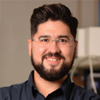 |
Hugo Miguel SantosHead of the Laboratory for Biological Mass Spectrometry – Isabel Moura - BIOSCOPE Research Group, LAQV-REQUIMTE, Department of Chemistry - NOVA School of Science and Technology, NOVA University Lisbon (Caparica, Portugal) Chief Proteomics Technology Officer PROTEOMASS Scientific Society hmsantos@fct.unl.pt View Full BiographyDr. Hugo Santos is an alumnus of NOVA University Lisbon, where he earned a degree in Applied Chemistry, specializing in Bioorganic Chemistry. Building on his expertise in Bioorganic Chemistry and Molecular Biology, he pursued a PhD in Biochemistry in collaboration with NOVA and the Turku Centre for Biotechnology (Finland), focusing on MALDI-TOF-MS for protein analysis. After his PhD, Dr. Santos advanced mass spectrometry techniques at the University of Vigo, Spain, before transitioning to biomedical applications at the Institute of Biotechnology and Biomedicine in Barcelona. Upon returning to NOVA in 2013, Dr. Santos pioneered nano-proteomics methods and established the Laboratory for Biological Mass Spectrometry – Isabel Moura. In 2016, he was awarded the prestigious FCT Investigator Starting Grant, allowing him to develop MS-based proteomics techniques for studying renal cell carcinoma and bladder cancer. His research led to the creation of the Differential Personal Pathway Index for predicting bladder cancer recurrence, now being expanded to breast cancer in collaboration with Harvard Medical School. In his current position as a tenure-track Assistant Researcher at LAQV, NOVA University Lisbon, Dr. Santos conducts research that bridges biochemistry, OMICS, sustainability, bioinformatics, and thermodynamic-based methods, focusing on early pathology detection and establishing reliable screening protocols. An educator and mentor, Dr. Santos has supervised over ten master’s students, six PhD candidates, and hosted visiting PhD students from Ireland, Spain, Italy, and Brazil. Additionally, he has taught advanced mass spectrometry and biochemistry techniques to more than 1,000 undergraduate students, contributing significantly to the next generation of scientists.
Dr. Santos’ contributions have earned him international recognition, as reflected in his numerous collaborations, invited keynote lectures, and over 100 peer-reviewed publications. Since 2019, he has also served as an Adjunct Assistant Professor at the University of Pittsburgh School of Medicine, further broadening his impact and international recognition. Orcid: 0000-0002-6032-8679 |
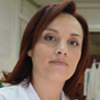 |
Elisabete OliveiraHead of the Laboratory for Mesoporous Silica Nanoparticles, Imaging and Drug Delivery BIOSCOPE Research Group, LAQV-REQUIMTE, Department of Chemistry - NOVA School of Science and Technology, NOVA University Lisbon (Caparica, Portugal) - PROTEOMASS Scientific Society ej.oliveira@fct.unl.pt View Full BiographyDr. E. Oliveira graduated, in 2006, in Applied Chemistry from FCT- Nova University Lisbon, Portugal, in 2007 obtained a master’s in biotechnology and completed a PhD degree in Biotechnology in 2010, at the same University. In 2013, she obtained a second PhD degree in “Food Science and Technology” by the Science Faculty of Ourense Campus at the University of Vigo, Spain. Currently, she is Assistant Researcher at LAQV-REQUIMTE FCT NOVA (Portugal). In 2008, E. Oliveira received the prize in Creativity and Quality in Research Activity in sensors area, attributed by Foundation Calouste Gulbenkian, Portugal and in 2016 she was awarded with the Prize For Women in Science, “Medalhas de Honra L’Oréal Portugal para as Mulheres na Ciência” in the field of health Sciences. Her scientific interests are focused in (i) synthesis of new bio-inspired emissive ligands as fluorescence chemosensors, (ii) supramolecular chemistry (Photophysics and photochemistry), (iii) applications in vitro (solution and solid studies) and in vivo (cell imaging studies); (iv) synthesis of new emissive nanomaterials, as Quantum Dots and Mesoporous Silica nanoparticles for dual drug delivery and biomarker discovery in biological samples, and (v) Antibacterial studies of cargo-delivery mesoporous nanoparticles. To date, he has mentored 3 PhDs. Orcid: 0000-0002-8339-4820 |
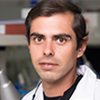 |
Javier Fernández-LodeiroHead of the Laboratory for Green Methodologies applied to Metallic Nanoparticles. BIOSCOPE Research Group, LAQV-REQUIMTE, Department of Chemistry - NOVA School of Science and Technology, NOVA University Lisbon (Caparica, Portugal) - PROTEOMASS Scientific Society View Full BiographyDr. J. Fernández-Lodeiro graduated in 2010, in Inorganic Chemistry from the University of Santiago de Compostela, Spain, in 2011 obtained a master’s degree in nanochemistry by the University of Vigo, Spain, and completed a PhD degree in Physical Chemistry in 2012, at the same University. Between 2013-2014, he did a postdoctoral stage at the São Paulo University, Chemistry Department. From 2015 to 2019 he did a second postdoctoral stage at the NOVA University Lisbon, Chemistry Department. From 2019-2024 have a DL57 contract as Junior Researcher at LAQV-REQUIMTE FCT NOVA (Portugal). In 2024 became Assitant Researcher Tenure at the LAQV-REQUIMTE FCT NOVA Research Unit. In 2012, J. Fernández-Lodeiro received the Extraordinary Doctoral Award Promotion of Physical Chemistry attributed to the best PhD thesys in the field by the University of Vigo, Spain. His scientific interests are focused in (i) development of new green methodologies applied to the synthesis of metallic nanoparticles, specially gold, silver, platinum and paladium, (ii) supramolecular chemistry (Photophysics and photochemistry), (iii) preparation of new bimetallic nanoparticles for catalysis and antibacterial applications; (iv) synthesis of new emissive nanomaterials, as Quantum Dots and Se, and Te containing nanomaterials, and (v) Antibacterial studies using cargo-delivery mesoporous silver nanoparticles. To date, he has mentored 2 PhDs. Orcid: 0000-0001-8853-2631 |
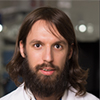 |
Adrian Fernández-LodeiroPostdoctoral Researcher Marie Curie Onisilos-MSCA Postdoctoral Researcher Department of Electrical and Computer Engineering Nanotechnology Imaging and Detection Laboratory University of Cyprus View Full BiographyOrcid: 0000-0003-3742-1186 |
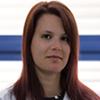 |
Silvia NutiPost-Doc, University of Bologna, Bologna, Italy View Full BiographyDr. Silvia Nuti earned her BSc in Chemistry and Materials Chemistry in 2015 and her MSc in Photochemistry and Molecular Materials in 2018 from the University of Bologna, Italy. Her academic journey includes an Erasmus+ research period and her PhD at NOVA University of Lisbon, Portugal, completed in 2024. During her doctoral studies, she focused on the design and development of multifunctional nanoparticles tailored for applications in energy, catalysis, and antibacterial solutions, contributing to advancements in sustainable materials science. She is currently a postdoc at the University of Bologna. Orcid: 0000-0003-1420-6109 |
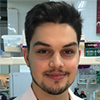 |
Luis Botelho CarvalhoPostodoctoral Researcher NOVA FCT – NOVA University Lisbon View Full BiographyOrcid: 0000-0002-3761-8512 |
 |
Emilia BertoloPrincipal Lecturer in Chemistry STEM Ambassador since 2020 (she/her) View Full BiographyDr Emilia Bertolo is a Principal Lecturer in Chemistry in the section of Natural and Applied Sciences, Canterbury Christ Church University, where she teaches chemistry-focused modules in various Chemistry and Biological Sciences programmes. Her pedagogical research interests focus on improving the learning experience of chemistry students (especially those in non-chemistry degrees), and the integration of research at all levels into the undergraduate curriculum. She has published several articles and two book chapters on this topic, and presented her work at various international conferences. One of her passions is getting children (especially primary school children) interested in science and chemistry. Emilia is a STEM (Science, Technology Engineering and Maths) ambassador, and has recorded several videos with chemistry and science experiments that can be done at home. Her YouTube channel is @dremiliabertolo Orcid: 0000-0002-1633-8212
|
 |
Ivana PibiriHead of the Laboratory for Bioactive Molecules and Organic Materials, PI of the Nonsense Team. Associate Professor at the Department of Biological, Chemical and Pharmaceutical Science and Technologies - STEBICEF, University of Palermo, Palermo (Italy) (she/her) View Full BiographyProf. Ivana Pibiri is an Associate Professor of Organic Chemistry at the STEBICEF Department of the University of Palermo. Her teaching focuses primarily on Organic Chemistry. She currently lectures in two courses: Chemistry of Organic Materials and Food Chemistry, where she also serves as ERASMUS delegate. Her early research addressed the synthesis and thermal/photochemical reactivity of heterocycles, as well as the preparation of organic and composite materials. Over the past decade, her work has increasingly concentrated on the application of heterocycles as therapeutic agents for genetic diseases. This research has been supported by funding from the Italian Cystic Fibrosis Research Foundation, PNRR, the Ministry of University and Research, and the Ministry of Health. As an educator and mentor, Prof. Pibiri has supervised over 37 students at the Bachelor’s, Master’s, and PhD levels. She is strongly committed to multidisciplinary research, as reflected in her numerous national and international collaborations and invited keynote lectures. Her work has resulted in over 84 articles in international peer-reviewed journals (H-index: 33), 8 book chapters, and several national and international patents. Prof. Pibiri’s research has earned her international recognition. She was awarded the ITWIIN 2023 Award for Best Female Innovator in Italy and received the GlobalWIIN Gold Research and Development Award, sponsored by UCL, for her pioneering research on therapeutic approaches to rare diseases. Orcid: 0000-0001-5885-164X
|
 |
Patrícia Alexandra Curado Quintas Diniz PoetaFull Professor| Senior Researcher at Veterinary and Animal Research Centre, Associate Laboratory for Animal and Veterinary Science (AL4AnimalS) | EBVS® European Specialist in Veterinary Microbiology Head of MicroART- Microbiology and Antibiotic Resistance Team View Full BiographyFull Professor at the University of Trás-os-Montes and Alto Douro (UTAD)., EBVS® European Specialist in Veterinary Microbiology. Member of CECAV-UTAD and collaborator of LAVQ-REQUIMTE, Chemistry Department, Faculty of Science and Technology, University NOVA of Lisbon. PhD in Veterinary Medicine by UTAD and Coordinator of the Research Group MicroArt- Microbiology and Antibiotic resistance Team and Head of Medical Microbiology Laboratory. She is also the first Portuguese Ambassador of the Global AMR Insights Network and an active member of the European Society for Clinical Microbiology and Infectious Diseases, where she integrates five European study groups. In the past she was secretary of the ESGVM Executive Committee of ESCMID. President of the Scientific Committee of School of Agrarian and Veterinary Sciences. Her main research interest is the characterization of antibiotic resistance mechanisms in bacteria of different origins as humans, animals, food, water and the environment, as well as the performance of studies of molecular epidemiology to characterize the genetic lineages of antibiotic-resistant bacteria. Director of several doctoral and masters’ theses. Also responsible for research projects funded by private companies and inter-university projects, teaches international courses and Master’s degree and keeps working activities with several national and international entities. Furthermore, she has played key roles in organizing scientific events, served on editorial boards of journals, and participated in scientific dissemination initiatives highlighting the interconnection between human, animal, and environmental health. With regard to scientific production has published more than 280 articles in journals from the SCI and book chapters. Has more than 1000 communications at international scientific meetings, presentations at national or Iberian scientific meetings, posters at scientific meetings. More than 10.000 publications in GenBank, UniProt, records in MLST, among others. Received 48 awards. Operates in the areas of Veterinary Science. In professional activities interacted with 175 workers in authorship and co-authorship of scientific papers. Orcid: 0000-0003-0925-689X |
 |
Susana P. GaudencioLeader of the Blue Biotechnology and Biomedicine Lab, NOVA School of Sciences and Technology, NOVA University of Lisbon View Full BiographyDr. Susana P. Gaudêncio is the Leader of the Blue Biotechnology and Biomedicine Lab, NOVA School of Sciences and Technology, NOVA University of Lisbon. From 2019 to 2024 she played a pivotal role in the European Transdisciplinary Networking Platform for Marine Biotechnology, OCEAN4BIOTECH CA18238, where she has the roles of MC member, WG2 leader, and STSM (Short-Term Scientific Mission) Committee Member. In 2019, she hosted two of the world’s most prestigious congresses in Marine Natural Products, the joint XVI MANAPRO & XI ECMNP, in Peniche, Portugal. In the same year she also organized the 1st UCIBIO Blue Biotechnology Workshop. She graduated in Chemistry in 1998 at FCUL, granted a MSc in 2001 (Technological Organic Chemistry, NOVA-FCT), a PhD in 2006 (Organic Chemistry, NOVA-FCT), and a post-doc in 2017-2010 (Marine Natural Products Chemistry, SIO, at Bill Fenical Lab, UCSD, CA, USA). She is an Auxiliar researcher (Career Researcher) with 55 publications indexed in Web of Science, 50 of which are also indexed in Scopus. Her work stands out, with 28.0% and 32.0% of her publications ranked among the top 10% most cited journals worldwide and in CiteScore, respectively, h-index 25, over 1800 citations, FWCI 1.951, 1 patent (PT115055, 4 citations), 65 oral communications and 67 poster communications. She participated in several National/International projects, from a total of 23 projects. Orcid: 0000-0002-5510-1170 |
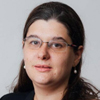 |
Fernanda Papa SpadaPhD in Food Science and Technology from the University of São Paulo / Luiz de Queiroz College of Agriculture (USP/ESALQ View Full BiographyHolds a PhD in Food Science and Technology from the University of São Paulo / Luiz de Queiroz College of Agriculture (USP/ESALQ). Currently, she is conducting postdoctoral research at the Faculty of Pharmaceutical Sciences, University of São Paulo (FCF/USP). She collaborates with the Flavor Centre at the University of Reading, UK (CNPq/Science Without Borders), specializing in gas chromatography-olfactometry (GCO) and techniques for identifying volatile compounds (GC-MS and SPE). During her undergraduate studies, she participated in a university exchange program (Brazil/France - BRAFRAGRI CAPES), focusing on Food Science at USP/ESALQ and the Institut National de la Recherche Agronomique (INRA-Dijon) within the OPALINE project. In mid-2010, she returned to USP/ESALQ and completed a Master’s degree in Food Science and Technology in 2012, focusing on the development of reduced-fat products with high sensory acceptance among consumers of various age groups. Throughout her academic career, she received scholarships from CNPq and FAPESP during her Scientific Initiation and Master’s programs. She is known for her determination, persistence, and eagerness to learn and set new goals. She also possesses strong teamwork skills, fluency in French and English, and expertise in advanced data analysis, bio-statistics, and computational tools. Orcid: 0000-0002-9679-8066 |
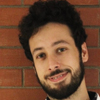 |
Marco CarlottiAssistant Professor (RTDA) at the Dipartimento di Chimica e Chimica Industriale of the University of Pisa View Full Biography
Marco Carlotti received his MSc in Inorganic Chemistry from the University of Pisa (Italy). He then moved on to the University of Groningen (The Netherlands) where he obtained a PhD in Molecular Electronics under the supervision of Prof. R.C. Chiechi in 2019. In the same year he returned to Italy, as scientific collaborator at the Center for Material Interfaces of the Istituto Italiano di Tecnologia, where he investigated novel functional materials and techniques for 3D-microfabrication and, as a Marie Skłodowska-Curie Individual Fellow, developed processable precursors for conjugated polymers. Orcid: 0000-0001-8086-7613 |
 |
Viviane PillaPhD in Applied Physics Sciences (USP 2001). Post-doctorate in Applied Physics in nonlinear optics (UFPE 2001/2002) and thermo-optical characterization of the rare earth doped glasses (UNICAMP 2005). View Full BiographyPhD in Applied Physics Sciences (USP 2001). Post-doctorate in Applied Physics in nonlinear optics (UFPE 2001/2002) and thermo-optical characterization of the rare earth doped glasses (UNICAMP 2005). Since 2010 is a professor at the Federal University of Uberlândia (UFU). Has experience in Physics, focusing on Optical and Spectroscopic Properties of Condensed Material, acting mainly on the following subjects: Photo-thermal Effects; Thermal Lens; Optical Properties; Characterization of Materials: Semiconductor Nanocrystals (Functionalized and Non-functionalized for Biological Applications), Optical Materials (Crystal and Glasses), Organic (polymers) and Biomedical (biofluids, natural dyes and dental resin composites); Synthesis of carbon nanoparticles, extraction of natural dyes (from plants and seeds) and preparation of biomaterials. Currently is associated Professor III at the Federal University of Uberlândia (UFU). Google Scholar: 21 h-index. Orcid: 0000-0003-1016-3519 |
 |
Federica PellatiDepartment of Life Sciences, University of Modena and Reggio Emilia, Via G. Campi 103, 41125, Modena, Italy federica.pellati@unimore.it View Full BiographyFederica Pellati is an Associate Professor in Medicinal Chemistry at the University of Modena and Reggio Emilia in Italy, where she is the Principal Investigator of the research group “Natural Products for Medicinal Chemistry”. Her research is dedicated to the study of bioactive natural compounds as new leads in medicinal chemistry. Her interest is focused on the extraction and analysis of molecules from Cannabis sativa L., and on the investigation of their biological activity against hyper-proliferative disorders and central nervous system (CNS) diseases. She has many international and national research projects and collaborations. In 2022, she has been awarded with the ElSohly Award by CANN-ACS for her research on C. sativa. She is the author of more than 120 papers in international scientific journals (h-index = 39 from Scopus), 2 patents and more than 100 congress communications. She is an editorial board member for many international Journals in the areas of medicinal chemistry and pharmaceutical analysis, including Scientific Reports, Antioxidants, Pharmaceuticals, Current Medicinal Chemistry, the International Journal of Molecular Sciences, Antibiotics, the Journal of Cannabis Research, Cannabis and Cannabinoid Research, the Journal of Pharmaceutical Analysis, the Journal of Pharmaceutical and Biomedical Analysis and Molecules. She is the coordinator of the degree course in Pharmacy and the Departmental delegate for international relations. Orcid: 0000-0002-3459-1166 |
 |
Atanas KurutosAssociate Professor. Institute of Organic Chemistry with Centre of Phytochemistry View Full BiographyAssociate Professor Atanas Kurutos obtained his BSc in Chemistry from Kingston University (London, United Kingdom) in 2010, and subsequently acquired an MSc in Organic Chemistry from Sofia University "St. Kliment Ohridski" - Faculty of Chemistry (Sofia, Bulgaria) in 2013. Within a span of 24 months, he defended his PhD thesis in 2016 at Sofia University "St. Kliment Ohridski" - Faculty of Chemistry, focusing on the design and synthesis of functional dyes for Theranostic applications. The same year, he was employed as an Assistant Professor at the Institute of Organic Chemistry with the Centre of Phytochemistry at the Bulgarian Academy of Sciences. Dr. Kurutos dedicated considerable time as a post-doctoral fellow at various institutions, including the Rudjer Boskovic Institute in Zagreb, Croatia, in 2015; the University of Fribourg in Fribourg, Switzerland, in 2017; Roskilde University in Roskilde, Denmark, in 2018; the University of Copenhagen in Denmark, in 2018; and a two-year JSPS fellowship at Keio University in Tokyo, Japan, from 2018 to 2020. At the commencement of 2022, he was awarded a Habilitation by the Bulgarian Academy of Sciences. Since then, he has been appointed as an Associate Professor at the same Institute and as a researcher at the University of Chemical Technology and Metallurgy in Sofia, Bulgaria, commencing in 2023. In 2024, he served as an Invited Professor at the Ruđer Bošković Institute in Zagreb, Croatia. His primary research interests encompass the design and synthesis of sensors and biosensors, as well as the application of contemporary spectroscopic methods for the characterisation of organic substances, including NMR, IR, mass spectrometry, and HPLC. Supplementary subfields include the investigation of photophysical characteristics of organic molecules and complexes; Fluorescence and UV-Vis spectroscopy; Circular Dichroism; interactions between fluorophores and diverse biomolecules, along with the identification of binding motifs; Solvatochromism; Aggregation-Induced Emission; and sensors for heavy metal quantification. Dr. Kurutos has co-authored over 60 publications and 3 book chapters published in the last 7 years. Orcid: 0000-0002-6847-198X |
 |
Tarita BiverDepartment of Chemistry and Industrial Chemistry - University of Pisa Via Giuseppe Moruzzi 13 - 56124 Pisa, Italy View Full BiographyProf. Tarita Biver earned her MSc (2000) and PhD (2005) at the University of Pisa (UniPI), with part of her PhD completed at the Max Planck Institute for Biophysical Chemistry in Göttingen, Germany. She became Assistant Professor at UniPI in 2006 and Associate Professor in 2021. She has also been a Visiting Professor at the University of Burgos (2011), Mongolian University of Science and Technology (2018), and Cadi Ayyad University of Marrakesh (2019). Her research focuses on kinetics and thermodynamics of metal complexes in solution, and the interactions of small molecules with polynucleotides and proteins for health and environmental applications. She also investigates micelle/liposome interactions, micellar extraction, and fluorophores for advanced materials like solar concentrators. Orcid: 0000-0001-8512-8422 |
 |
Pier Luigi GentiliAssociate Professor of Physical Chemistry Università degli Studi di Perugia Via elce di sotto 8 06123 Perugia, Italy View Full BiographyPier Luigi Gentili is an Associate Professor of Physical Chemistry and a member of the “Photochemistry and Photophysics Group” at the University of Perugia. He also worked in other groups at Harvard, Brandeis, and Bowling Green State Universities in the USA, the “European Laboratory of Nonlinear Optics” in Florence and the “Laboratory of Computational Chemistry and Photochemistry” at the University of Siena, Italy. His research and teaching activities are focused on the interdisciplinary subject of Complex Systems. A question driving his research is: “Which performances of biological intelligence can be mimicked by inanimate chemical systems?” Orcid: 0000-0003-1092-9190 |
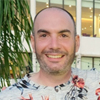 |
Clement CabanetosCNRS Research Director clement.cabanetos@univ-angers.fr View Full BiographyAfter graduation in 2008, Clément Cabanetos undertook a PhD at the CEISAM laboratory (Nantes, France) on the synthesis of new crosslinkable polymers for nonlinear optical applications. Shortly after his thesis defense, he joined KAUST (Saudi Arabia) as a postdoctoral fellow to prepare efficient π-conjugated macromolecular materials for organic photovoltaics. In 2013, he was recruited as a permanent CNRS researcher at MOLTECH-Anjou laboratory in Angers to develop new and original concepts for organic electronics. He defended his habilitation in 2018 (associate professorship) and received in 2019 the CNRS bronze medal. In early 2021, he moved to an international joint laboratory (2BFUEL) hosted at Yonsei University (Seoul, South Korea) to broaden his expertise and collaborations. In charge of this laboratory from September 2022 to December 2023, he finally went back to France as CNRS Research Director (DR) with new scientific prospects. Loving husband (married to Christina) and father of two (Cassandre and Esteban), this science curious and enthusiastic pal enjoys simple things such as long diners in good company, resting in front of a fire pit while listening to music, (BBQs) and surfing/longboarding.
|
 |
Jakub ZdartaAssociate Professor Institute of Chemical Technology and Engineering Faculty of Chemical Technology Poznan University of Technology Berdychowo 4, 60965 Poznan, Poland jakub.zdarta@put.poznan.pl View Full BiographyDr. Jakub Zdarta is an Associate Professor at the Faculty of Chemical Technology at Poznan University of Technology. He has been selected as 2% Highly Cited Researchers in 2022 and 2023 accrodiong to ranking of Stanford University and Elsevier. His academic background covers biocatalysis, environmental sciences, chemical engineering and organic chemistry. His main research is on developments of biocatalytic systems for pollutants removal and recovery and for synthesis of actrive pharmaceutical ingredients with a special focus on green chemistry and circular economy. He also has a certain expertise in the field of nanotechnology. Dr. Zdarta published plenty of scientific papers in leading international and national journals. According to Scopus database (09.12.2024), he published 126 articles, which have been cited 5,148 times with h-index = 35. Also, he published a numerous book chapters and acts as an Editor in one book. Prof. Zdarta is serving as a guest editor of the international journals including Environmental Technology & Innovations,. Chemosphere, Materials, Molecules and AIMS Biotechnology, Catalysis Communications. He is also a member of the editorial boards in numerous of renowned journals. Prof. Zdarta was the chair of the fourth international conference Green Technologies for Sustainable Environment 2024 (GTSE24) in September 2024 and was a leading person of the organizing commeettee for BioOrg 2022 conference in December 2022. He was also an invited speaker (plenary and keynote) at many international and national conferences. For his outstanding scientific achievements, he got the following awards: Scholarship of the Minister of Science and Higher Education for outstanding Young Scientists in 2019, Scientific Award of the 4th Division of Technical Sciences of the Polish Academy of Sciences in 2022, Award of the Prime Minister in 2022 for scientific achievements constituting the basis for conferring the degree of habilitated doctor and Award of the Ministry of Higher Education and Science in 2023 for outstanding scintific achievements. Dr. Zdarta visited numerous centres and scientific institutions in different countries and collaborates mainly with the MIT, Technical University of Denmark, University Technology Sydney and University fo Almeria. Orcid: 0000-0003-2835-5447 |
 |
Jose Manuel Vila AbadInorganic Chemistry University of Santiago de Compostela (Spain) View Full BiographyOrcid: 0000-0003-2196-1022 |
 |
Veronica DoderoPrincipal Lecturer in Chemistry Fakultät für Chemie Universtät BielefeldUniversitätsstr. 25, 33615 Bielefeld veronica.dodero@uni-bielefeld.de View Full Biographywww.doderolab.com Dr. Verónica I. Dodero, a distinguished researcher at Bielefeld University, is at the forefront of peptide science, with expertise spanning oligomerization and immunology. Her work explores fundamental research on small molecules and peptide self-assembly, aiming to uncover their functions and mechanisms in biological systems. She has embarked on disclosing the early molecular events that connect gluten proteolytically resistant peptides and inflammation using a translational chemistry approach. Her group combines state-of-the-art organic and peptide synthesis with advanced physicochemical characterization and cellular biochemistry approaches. This integrated strategy comprehensively explores the intricate relationships between molecular structure, organization, and function within biologically relevant environments. Dr. Verónica I. Dodero began her academic journey in chemistry at the Universidad Nacional del Sur in Argentina, where she earned her Bachelor's degree (1993–1998) and completed her PhD in Chemistry under the supervision of Prof. J.C. Podestá, with additional mentorship from Prof. T.N. Mitchell at TU Dortmund, Germany (1998–2003). Following her doctorate, she gained extensive postdoctoral experience, first with Prof. J.L. Mascareñas at the Universidad de Santiago de Compostela in Spain (2003–2007) and then with Prof. M.L. López Rodríguez at the Universidad Complutense de Madrid (2007). Returning to Argentina, she joined CONICET as an Adjunct Researcher and Independent Group Leader (2008–2017) while serving as an Adjunct Professor of Organic Chemistry at the Universidad Nacional del Sur (2009–2017). During this time, she also became an Alexander von Humboldt Fellow (2015–2017), conducting research with Prof. N. Sewald at Bielefeld University, Germany, where she further advanced her expertise in peptide science and chemical biology. Now, she combines her expertise with the application of colloidal science theories and methodologies to study peptide and protein self-assembly and aggregation in collaboration with Prof. Thomas Hellweg. Orcid: 0000-0001-7937-1880 |
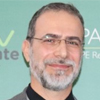 |
Massimo La DedaDepartment of Chemistry and Chemical Technologies & CNR Nanotec Institute of Nanotechnology The University of Calabria I – 87036 Rende (CS) ITALY View Full BiographyMassimo La Deda is associate professor of General and Inorganic Chemistry at the Department of Chemistry and Chemical Technologies of the University of Calabria (Italy) and member of the Institute of Nanotechnology of the National Research Council (CNR - Nanotec). He received his degree in Chemistry from the University of Bologna in 1997: his final thesis was in Photochemistry ("Kinetics of Electron Transfer in Photosynthetic Reaction Centers ") under the supervision of Prof. Vincenzo Balzani . After an INFM (National Institute of Matter Physics) fellowship, in 1999, he started the degree course in Chemical Sciences at the University of Calabria under the supervision of Prof. Mauro Ghedini and received his Ph.D. in 2002 with a thesis entitled "New Metal-Containing Materials for Applications in Light-Emitting Devices". His research interests are focused on the synthesis and characterization of luminescent coordination compounds for applications in materials science and biomedicine, and on the colloidal synthesis and photophysical characterization of metallic nanoparticles exhibiting plasmonic properties, in advanced materials for energy saving and biomedicine, in particular design and synthesis of theranostic nanoplatforms applied in personalized medicine. He collaborates with various research groups around the world based in France (University of Lyon; Institut de Physique et Chimie des Matériaux de Strasbourg, IPCMS-CNRS), USA (Case Western Reserve University, Cleveland, OH), Romania (" Coriolan Dragulescu "Institute of Chemistry, Timisoara). For the commercial exploitation of his patents, in 2012 Massimo La Deda founded “NOTREDAME”, a high-tech start-up active in the development of electro-optical devices; and in 2024 he founded “NANOBIOMICA”, a company dedicated to the development of nanoparticle-based bioelectronics for applications in biosensing. |
 |
Artur BadydaWarsaw University of Technology, Faculty of Environmental Engineering, Department of Informatics and Environment Quality Research View Full BiographyHead of the Department of Informatics and Environment Quality Research at the Warsaw University of Technology (Warsaw, Poland). Head of the Laboratory of Environment Quality Research at the Warsaw University of Technology (Warsaw, Poland).
Prof. Artur Badyda graduated in Environmental Engineering in 2002, and received his PhD in 2007 from the Warsaw University of Technology, Poland. In the same year he became an Assistant Professor in the Department of Applied Mathematical Methods. Thereafter he continued his research on the health effects of the exposure to ambient air pollutants. In 2013 he took part in the research internship in Centre de Recerca en Epidemiologia Ambiental (CREAL) in Barcelona, Spain (currently Institut de Salut Global Barcelona (ISGlobal)). In 2014 Prof. Badyda got the habilitation in Environmental Engineering at the Wrocław University of Technology, Poland and in 2017 he became Associate Professor in the Department of Informatics and Environment Quality Research at the Warsaw University of Technology. Since then, Dr. Badyda participated in 2 scientific internships (in Military Institute of Medicine, Poland, 05.2015-04.2018 and in IUF – Leibniz-Institut für umwelt-medizinische Forschung,, Germany, 04.2023) and 1 industrial internship (in recordum GmbH, Austria, 08.2021-09.2023). In 2023 he passed the State Specialization Examination at the Medical Examination Center, obtaining the title of specialist in the field of environmental health. In 2024 he received the Title of Professor from the President of the Republic of Poland and took up the position of full professor. His scientific interests are closely related to environmental determinants of health, health impact assessment, with particular emphasis on the influence of ambient air pollution on the environment and human health. Professional interests are focused on issues related to environmental protection management, air quality monitoring, broadly defined environmental protection, environmental impact assessment, health impact assessment and common ecological education, especially in the area of health effects of exposure to air pollution. He also deals with problems of public consultation in the field of infrastructure investments. Former advisor to the Minister of Environment of the Republic of Poland. |
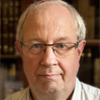 |
Ramón Martínez MañezInstituto Interuniversitario de Investigación de Reconocimiento Molecular y Desarrollo Tecnológico (IDM) Universitat Politècnica de València, Universitat de València. Camino de Vera, s/n. 46022, Valencia, Spain View Full BiographyRamón Martínez-Máñez has worked for more than 30 years in the design of nanoparticles for controlled drug release, and chromofluorogenic probes and chemical sensors for biomedical, environmental and food technology applications at the Universitat Politècnica de València (UPV). He is currently Director of the Inter-University Institute for Molecular Recognition Research and Technological Development (IDM), Scientific Director of the ICTS NANBIOSIS and has been Scientific Director of the Centre for Biomedical Research Network in Bioengineering, Biomaterials and Nanomedicine (CIBER-BBN) during the last years. Ramón Martínez-Máñez has published more than 600 research articles. He is co-editor of a book, co-author of 25 book chapters and has supervised 61 doctoral theses and 65 international students in his laboratory. He has been a member of several Expert Commissions at National and International level. He was coordinator of the Inter-University PhD Programme in Chemistry at the UPV. He has been coordinator of more than 200 projects funded by the Spanish Government, the Generalitat Valenciana, the Instituto de Salud Carlos III and Europe. He is currently participating in 7 European Projects including an ERC Advanced Grant. Reviews of his research have appeared more than 175 times in local and national newspapers and on TV. He has participated in more than 45 projects in collaboration with national and international companies. He has 38 patents, some of them transferred to different companies. He has co-founded three spin-offs related to the fields of nanomedicine and sensors. In 2016 he received the Award for Research Excellence from the Spanish Royal Society of Chemistry. In 2023, he received the UPV awards for the Media Impact of Research and for a Pioneering Scientific Career. In 2018 he received the Jaume I Award for New Technologies. In 2024 he received the Juan de la Cierva National Research Award. |
 |
Gilberto IgrejasProfessor at UTAD and Coordinator of the Functional and Proteomics Unit and integrated member of (Bio)Chemistry & Omics, LAQV-REQUIMTE of the Nova University of Lisbon. View Full BiographyPhD in Genetics and Biotechnology, Master in Genetic Resources and Improvement of Agricultural and Forest Species, by the University of Trás-os-Montes and Alto Douro (UTAD) in collaboration with the National Institute of Agronomique (INRA) in 2001 and 1997, respectively. Post-Graduation in Legal Medicine, National Institute of Legal Medicine - Porto/Faculty of Medicine of the University of Porto, 2002. Post-Doctorate in Molecular Genetics, as a Visiting Scientist, at the Commonwealth Scientific & Industrial Research Organization (CSIRO), Australia (2004-2005). Course in Public Finance Management (2020-2021) and Advanced Course in Public Management (2020), at the University Institute of Lisbon (IUL) | Institute for Public and Social Policies (IPPS). Professor at UTAD and Coordinator of the Functional and Proteomics Unit and integrated member of (Bio)Chemistry & Omics, LAQV-REQUIMTE of the Nova University of Lisbon. He develops research work focused on the use of omics tools, particularly genomics and proteomics, at the molecular genetics and biotechnology level of various plant, animal and microbial species. These are in the chronological involvement as priority research areas, based on these tools and their scope i) characterization of genetic resources of wheat, rye and triticale; ii) Proteomics applied to the detection of genes responsible for the functionality and allergenicity of wheat grain, rye and triticale; iii) Genomics and proteomics applied to antibiotic resistance; iv) Nutrigenomics and proteomics applied to the evaluation of protein species and finally, v) Probiotics in biotechnology and health. In 2022 he was included in the list of world authors with the greatest scientific impact in the area of "One Health", being the first Portuguese and occupying the 4th position worldwide.
|
 |
Ana Luísa FernandoMEtRICs/CubicB, Departamento de Química, NOVA School of Science and Technology, NOVA FCT, Universidade Nova de Lisboa, Campus de Caparica, 2829-516 Caparica, Portugal View Full BiographyANA LUISA FERNANDO is an Associate Professor at Universidade Nova de Lisboa, NOVA School of Science and Technology, Portugal. Researcher at MEtRiCS, Mechanical Engineering and Resource Sustainability Center, hosted by Universidade do Minho and Universidade NOVA de Lisboa. Graduated in Applied Chemistry (UNL), in 1990, with a MSc in Food Technology/Quality (1996, UNL) and a PhD in Environmental Sciences (2005, UNL). Orcid: 0000-0001-9270-3982 |
 |
Jean Christophe PoullyUniversity of Caen, CIMAP institute, Bd Becquerel 14070 CAEN, France View Full BiographyJean-Christophe Poully is associate professor at the University of Caen Normandy (France). During his studies at the University of Rennes (France, 2001-2006), he got interested in the Physical Chemistry of isolated biologically-relevant molecular systems, through research training sessions at the University of Århus (Denmark). Since then, he has been studying the geometrical structure of these systems as well as their stability and response upon interaction with electrons, ions, atoms and photons. He earned his PhD in 2009 from the University of Paris 13 (France) and his habilitation in 2022 from the University of Caen (France). His research is multidisciplinary and he has international collaborations with physicists, chemists, biologists and medical doctors, notably regarding applications such as cancer radiation therapy. Orcid: 0000-0001-6000-2954
|
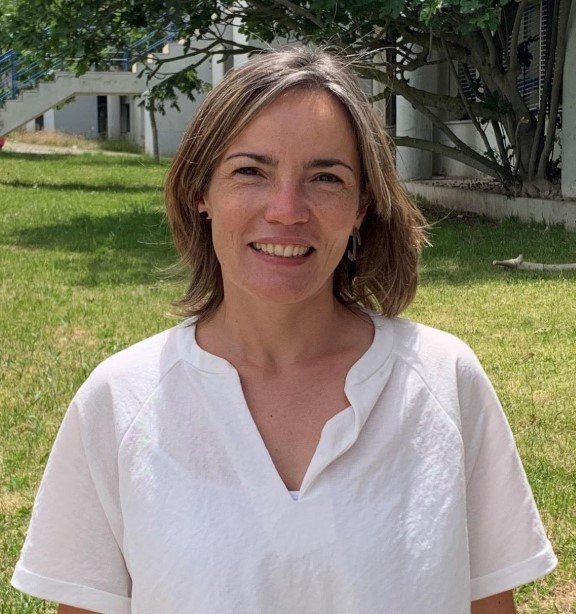 |
Ana Rita C. DuarteLAQV/REQUIMTE, Department of Chemistry, Nova School of Science and Technology, Portugal View Full BiographyAna Rita C. Duarte was born in Lisbon in 1978. Currently Associate Professor with habillitation at the Chemistry Department from Nova School of Science and Technology. She was previsously Research Assistant at the 3B’s research group at Universidade do Minho, where she worked for 10 years. She graduated in Chemical Engineering by Faculdade de Ciências e Tecnologia, Universidade Nova de Lisboa in 2002 and completed her PhD on Exploring supercritical fluid technology for the preparation of controlled drug delivery systems in 2006 by the same University. In 2006/2007 she was a researcher at Techniche Universiteit Delft, The Netherlands.
In 2016 she was awarded an ERC consolidator grant entitled: DES.solve – When Solids Become Liquids: Natural Deep Eutectic solvents for Chemical Process Engineering, to proceed the developments on green technologies. In 2022 she was awarded an ERC Proof of Concept grant to pursue one of the technologies developed withing DES Solve. In 2018, co-founded Des Solutio, a spin-off company from FCT-NOVA which aims to develop safer and greener alternatives to the chemicals that are usually used in the production of beauty, pharmaceutical, personal care and other products.
|
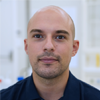 |
Carlos Fernández LodeiroUniversity of Vigo, Vigo, Spain Orcid: 0000-0002-8331-8799 View Full BiographyCarlos Fernández Lodeiro obtained his International PhD at the University of Vigo in May 2023, with a thesis focused on developing new strategies for the synthesis, characterization, and application of plasmonic nanoparticles, with particular emphasis on catalysis and immunosensors. His research, supervised by Professors Isabel Pastoriza-Santos and Jorge Pérez-Juste, was awarded the highest distinction, “cum laude.”
|
LEISHMANIASIS 2025
12th – 16th October 2025
Caparica (Lisbon), Portugal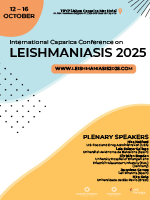
SAMPLETREATMENT 2025
30th November – 04th December 2025
Caparica (Lisbon), Portugal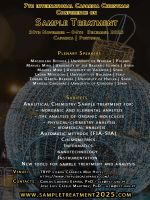
ISN2A 2026
25th – 29th January 2026
Caparica (Lisbon), Portugal